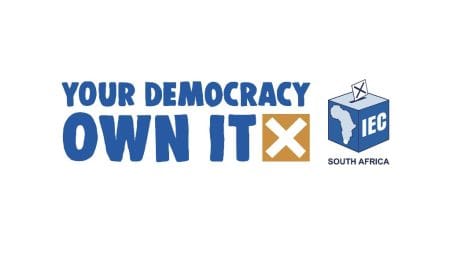IEC Elections are essential to a democratic society. They empower citizens to choose their leaders and shape the direction of governance at different levels.
This article explores the various types of IEC elections (National, Provincial, and Local elections) and explains their significance, advantages, and challenges. By understanding these elections, South African voters can make informed decisions that directly impact their communities and the nation.
What Are IEC Elections?

IEC Elections refer to the electoral processes managed by the Independent Electoral Commission (IEC) in South Africa. The IEC oversees the organisation of National, Provincial, and Local elections, ensuring transparency, fairness, and accessibility.
Each election type serves a different level of government, addressing specific needs and priorities. Let’s explore the three main types of IEC elections.
ALSO READ: IEC Register to Vote: How to Register Online in 2026
Types of IEC Elections
1. National Elections
Significance:
- National Representation: National elections enable citizens to elect representatives to the National Assembly and the President, who will influence national policies and legislation.
- National Governance: The results shape the country’s decisions on issues like education, healthcare, defence, and taxation.
- Global Relations: National election outcomes can impact international diplomacy and cooperation.
Advantages:
- Broad Influence: National elections affect the entire nation, influencing policies on a wide scale.
- Accountability: Voters hold national leaders accountable, ensuring decisions reflect public interests.
- Stability: Regularly scheduled national elections maintain political stability and smooth transitions of power.
Disadvantages:
- Centralisation of Power: These elections can concentrate power, diminishing regional voices.
- Complexity: The large-scale nature of national elections can lead to logistical challenges.
- Polarisation: Controversial national elections can deepen political divisions within society.
2. Provincial Elections
Significance:
- Regional Issues: Provincial elections allow citizens to elect leaders focused on regional concerns like infrastructure, healthcare, and education.
- Decentralisation of Power: These elections promote the devolution of powers, enabling provincial governments to address local needs more effectively.
- Resource Distribution: The outcome impacts resource allocation and the development of regional programs.
Advantages:
- Regional Autonomy: Provinces can implement policies tailored to their specific needs, empowering communities.
- Flexibility: Provincial governments have the flexibility to manage resources and policies in ways that suit local priorities.
- Diversity of Opinions: Regional elections represent a wide range of political ideologies, fostering diversity within the country.
Disadvantages:
- Fragmentation: Diverging policies across provinces can hinder national unity.
- Inequality: Disparities in provincial funding can lead to inequality, with wealthier regions receiving better services.
- Conflict: Competition between provinces can result in conflicts over resources or governance priorities.
3. Local Elections
Significance:
- Community Representation: Local elections allow citizens to elect leaders for municipalities and districts, addressing concerns such as zoning laws, waste management, and local infrastructure.
- Service Delivery: These elections determine the allocation of resources for essential services like water, sanitation, and public transportation.
- Quality of Life: Local governments play a vital role in improving the standard of living in communities through targeted initiatives.
Advantages:
- Direct Engagement: Local elections foster citizen participation and accountability, making governance more responsive.
- Responsive Governance: Local officials are often more accessible and responsive to the needs of their communities.
- Innovation: Local governments can implement innovative solutions to local problems, which can be scaled to the national level.
Disadvantages:
- Limited Resources: Local governments often face financial and administrative constraints, limiting their ability to implement large-scale programs.
- Partisan Politics: Local elections can sometimes be dominated by political parties rather than focusing on community issues.
- Fragmentation: Multiple local jurisdictions can lead to fragmented governance, causing inefficiencies in service delivery.
Comparing National, Provincial, and Local Elections
| Type of Election | Scope | Significance | Advantages | Disadvantages |
|---|---|---|---|---|
| National Elections | Country-wide | National policy decisions and leadership | Fragmentation, inequality, and resource conflict | Broad impact, accountability, and political stability |
| Provincial Elections | Regional (e.g., provinces) | Local governance and regional concerns | Regional autonomy, tailored policies, diversity of ideologies | Limited resources, partisan influence, and fragmentation |
| Local Elections | Local communities (municipalities, towns) | Direct governance of communities and local issues | Direct engagement, responsive governance, innovation | Limited resources, partisan influence, fragmentation |
Related: Essential Guide for Young and New Voters: Democracy in Action
FAQs About IEC Elections
What is the role of the IEC in South African elections?
The IEC is responsible for organising and overseeing the fairness of elections at all levels of government. It ensures voter education, maintains the voter roll, and ensures transparency in election results.
How often do South Africans vote in national elections?
National elections are held every five years to elect the National Assembly and the President of South Africa.
Why are provincial elections important?
Provincial elections allow citizens to elect leaders who will manage regional issues, allocate resources, and promote policies tailored to local needs, ensuring more localised governance.
IEC elections are a cornerstone of democratic governance in South Africa. Each type—national, provincial, and local—addresses different levels of governance and distinct issues.
While national elections set the broader direction for the country, provincial elections focus on regional concerns, and local elections address community-specific issues. Understanding these elections empowers citizens to participate effectively in shaping the future of their nation and local communities.










